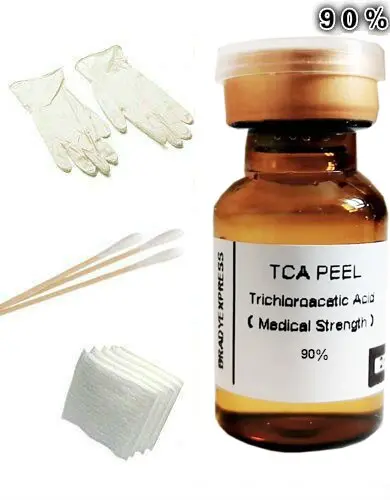- Home
- Medical news & Guidelines
- Anesthesiology
- Cardiology and CTVS
- Critical Care
- Dentistry
- Dermatology
- Diabetes and Endocrinology
- ENT
- Gastroenterology
- Medicine
- Nephrology
- Neurology
- Obstretics-Gynaecology
- Oncology
- Ophthalmology
- Orthopaedics
- Pediatrics-Neonatology
- Psychiatry
- Pulmonology
- Radiology
- Surgery
- Urology
- Laboratory Medicine
- Diet
- Nursing
- Paramedical
- Physiotherapy
- Health news
- Fact Check
- Bone Health Fact Check
- Brain Health Fact Check
- Cancer Related Fact Check
- Child Care Fact Check
- Dental and oral health fact check
- Diabetes and metabolic health fact check
- Diet and Nutrition Fact Check
- Eye and ENT Care Fact Check
- Fitness fact check
- Gut health fact check
- Heart health fact check
- Kidney health fact check
- Medical education fact check
- Men's health fact check
- Respiratory fact check
- Skin and hair care fact check
- Vaccine and Immunization fact check
- Women's health fact check
- AYUSH
- State News
- Andaman and Nicobar Islands
- Andhra Pradesh
- Arunachal Pradesh
- Assam
- Bihar
- Chandigarh
- Chattisgarh
- Dadra and Nagar Haveli
- Daman and Diu
- Delhi
- Goa
- Gujarat
- Haryana
- Himachal Pradesh
- Jammu & Kashmir
- Jharkhand
- Karnataka
- Kerala
- Ladakh
- Lakshadweep
- Madhya Pradesh
- Maharashtra
- Manipur
- Meghalaya
- Mizoram
- Nagaland
- Odisha
- Puducherry
- Punjab
- Rajasthan
- Sikkim
- Tamil Nadu
- Telangana
- Tripura
- Uttar Pradesh
- Uttrakhand
- West Bengal
- Medical Education
- Industry
TCA Paint Effective in treatment of Boxcar & Polymorphic Acne Scars

Scarring is a common complication of acne vulgaris with a significant impact on the psychological well-being of patients. While laser resurfacing remains the most effective treatment option for atrophic acne scars, the high incidence of post-treatment adverse effects limits its use. In a study, researchers have reported that trichloroacetic acid (TCA) is safe and effective in treating boxcar and polymorphic scars. The study findings were published in the journal Dermatological Surgery on December 16, 2021.
Acne vulgaris is a common disorder in the adolescent age group and unfortunately, post acne facial scarring is common. Previous studies demonstrated that trichloroacetic acid is efficacious in treating ice-pick scars, but the utility in other scar types is understudied. However, treatment options targeting both boxcar and polymorphic scars are still lacking. Therefore, Dr Cong Sun and Dr David Lim conducted a study to evaluate the efficacy and safety of 90% TCA in a boxcar and polymorphic acne scars using a novel brush applicator.
In a prospective study, the researchers included forty-one patients with acne scars. They treated the patient's boxcar and polymorphic scar with 90% TCA applied with a cosmetic brush. Each patient received three treatment sessions spaced between 7 and 9 weeks apart.
Key findings of the study:
- Upon analysis, the researcher found that all participants had good to excellent outcomes as per Jacob and colleagues' grading.
- They noted that the patients with skin Type 3 to 6 had more excellent outcomes (13 patients, 59%) than patients of skin type 1 to 2 (9 patients, 41%).
- They reported two (5%) post-procedural complications.
- They further mentioned that five participants (14%) were on concomitant isotretinoin with no appreciable increase in reepithelialization time or rate of complications.
The authors concluded, "Focal 90% TCA with a cosmetic brush applicator is safe and effective in treating boxcar and polymorphic scars. The clinical outcome is good to excellent with low rates of complication."
For further information:
Medical Dialogues Bureau consists of a team of passionate medical/scientific writers, led by doctors and healthcare researchers. Our team efforts to bring you updated and timely news about the important happenings of the medical and healthcare sector. Our editorial team can be reached at editorial@medicaldialogues.in.
Dr Kamal Kant Kohli-MBBS, DTCD- a chest specialist with more than 30 years of practice and a flair for writing clinical articles, Dr Kamal Kant Kohli joined Medical Dialogues as a Chief Editor of Medical News. Besides writing articles, as an editor, he proofreads and verifies all the medical content published on Medical Dialogues including those coming from journals, studies,medical conferences,guidelines etc. Email: drkohli@medicaldialogues.in. Contact no. 011-43720751


